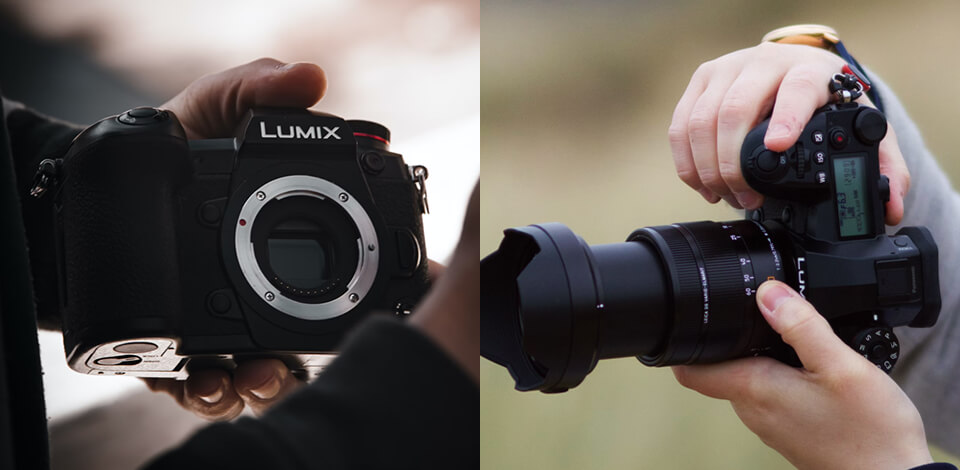
Panasonic cameras are incredibly versatile, catering to various shooting styles, conditions, and photographer levels. Whether you're a beginner or a seasoned pro into landscape, street, or even vlogging, there's a Panasonic camera that fits your needs perfectly.
From in-body image stabilization to 4K video support, these cameras provide you with the tools to bring your creative vision to life.
Perfect hybrid camera
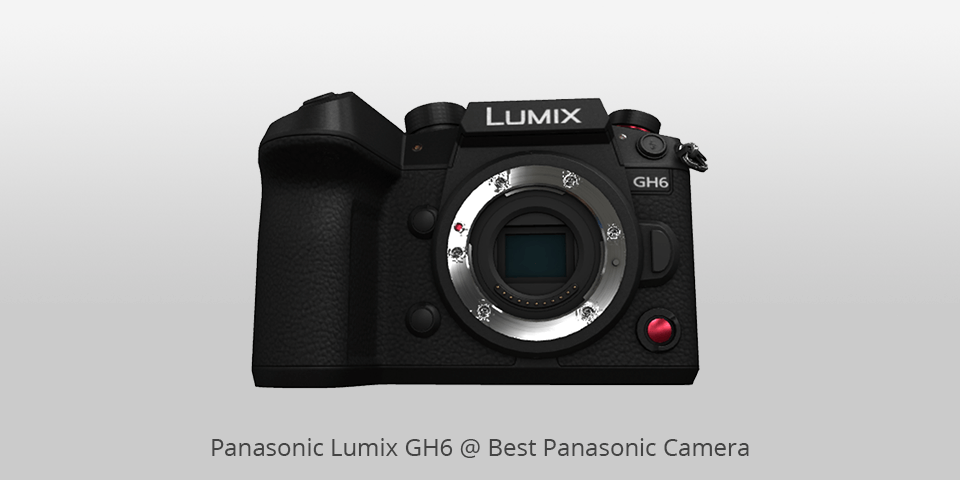
Form factor: Mirrorless | Image resolution: 25 MP | Photo sensor size: Micro Four Thirds | Image stabilization: Sensor-shift, Dual | Video resolution: 4K
Verdict: The GH6 is a solid hybrid mirrorless camera camera with a strong focus on video capabilities. It's weather-sealed, making it durable for different shooting conditions. It also has a comfortable grip and plenty of physical controls. The viewfinder is impressive, boasting a large 3.68 million dot OLED panel with 0.76x magnification.
One standout feature of this Lumix mirrorless camera is its internal 10-bit 4:2:2 ProRes HQ recording, which produces excellent video quality. It also supports V-Log and has expanded dynamic range with Dynamic Range Boost, giving you more flexibility in your footage.

The camera's in-body image stabilization is a game-changer, allowing for up to 7.5 stops of compensation. This means you can capture steady shots even when shooting handheld. Another noteworthy addition is the articulating LCD display, which can be tilted up to 90° and rotated 180°. This is particularly useful for shooting on the go.
Lightweight and durable
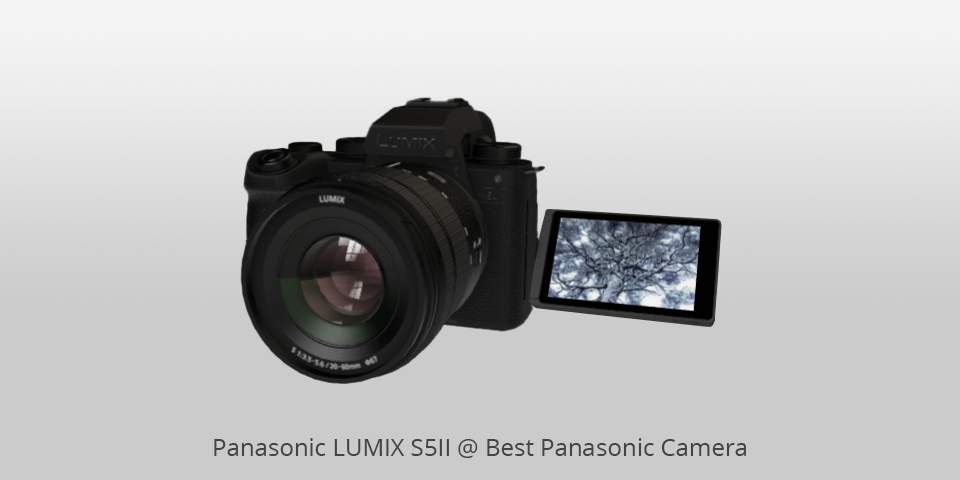
Form factor: Full-frame mirrorless | Image resolution: 24.2 MP | Photo sensor size: 35mm | Image stabilization: Digital | Video resolution: 6K 30p
Verdict: The S5II does offer some impressive video recording abilities. It can shoot in 6K 30p and has 4:2:0 10-bit internal recording, which gives you great flexibility in post-production. It’s one of the best Panasonic camera for video professionals as it comes with waveform and vectorscope monitoring, which help you monitor and control your footage.
This camera has a high resolution, excellent autofocus system, and a durable weatherproof body, making it a great choice for both photographers and videographers who demand top-notch quality. It's also compact and lightweight, making it easy to handle travel camera. The large LCD screen allows for clear image viewing, which is always a plus.
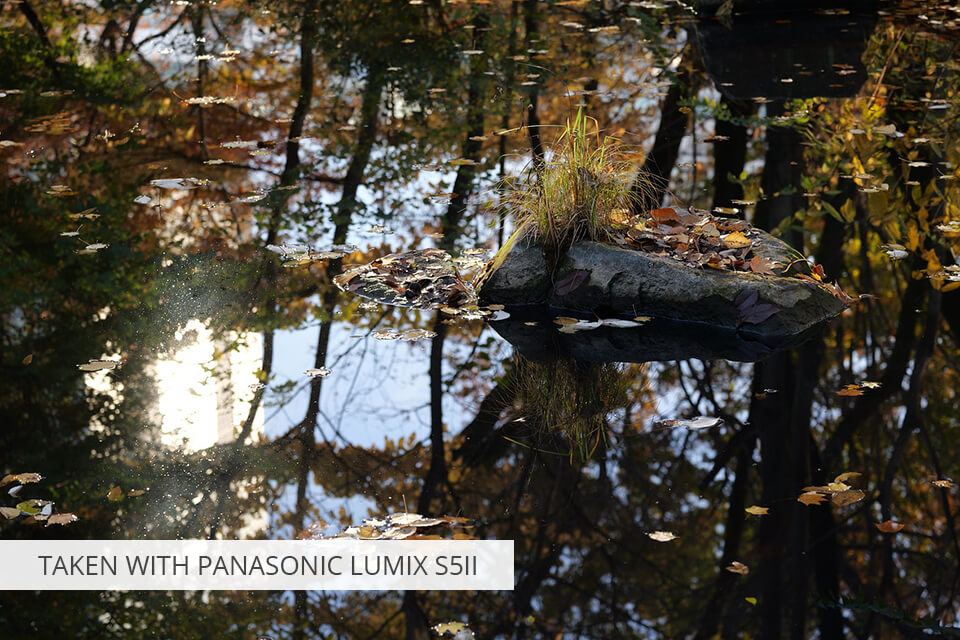
The S5II also excels in capturing high-resolution images. It can combine eight separate exposures into a single, detailed image using sensor-shift stabilization technology, which is particularly useful when using tripod for vlogging. Additionally, it has a high-resolution mode that's perfect for vloggers and other static subjects.
Compact and versatile
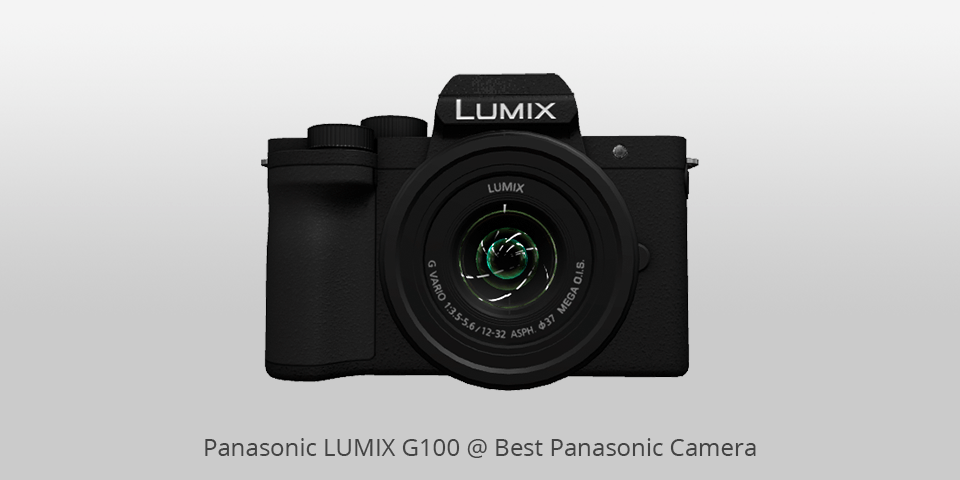
Form factor: Mirrorless | Image resolution: 20.3 MP | Photo sensor size: Micro Four Thirds | Image stabilization: Digital, 5-Axis | Video resolution: UHD 4K
Verdict: The G100 is specifically designed for video-centric content creation, taking on smartphones and small-sensor point-and-shoot cameras. It boasts a versatile UHD 4K recording mode and an improved multiple microphone system, which makes it one of the best mirrorless camera for video shooting.
One standout feature is its Ozo Audio, a high-performance internal microphone system developed by Nokia. With three internal microphones, it captures sound from different directions, reducing unwanted background noise and focusing on the subject's voice. This is a major selling point for vloggers who want to ditch external microphones.
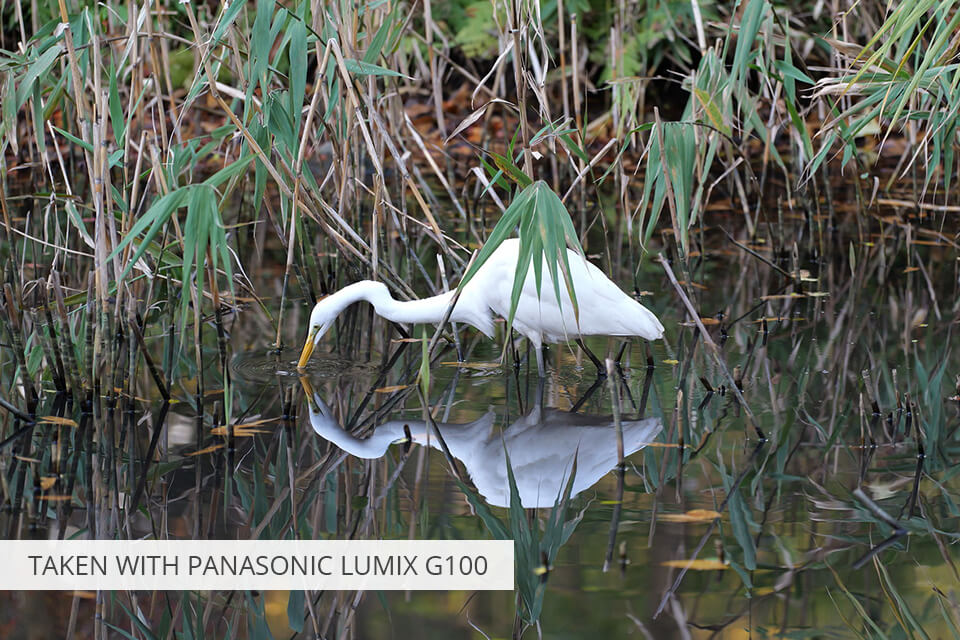
When it comes to photo capabilities, this Panasonic mirrorless camera offers a full suite of photo modes, including RAW image capture, in-camera retouch functions, and a range of creative filters and scene modes. Night photography enthusiasts will appreciate modes like Clear Night Sky, Warm Glowing Nightscape, and Artistic Nightscape.
Live-streaming features
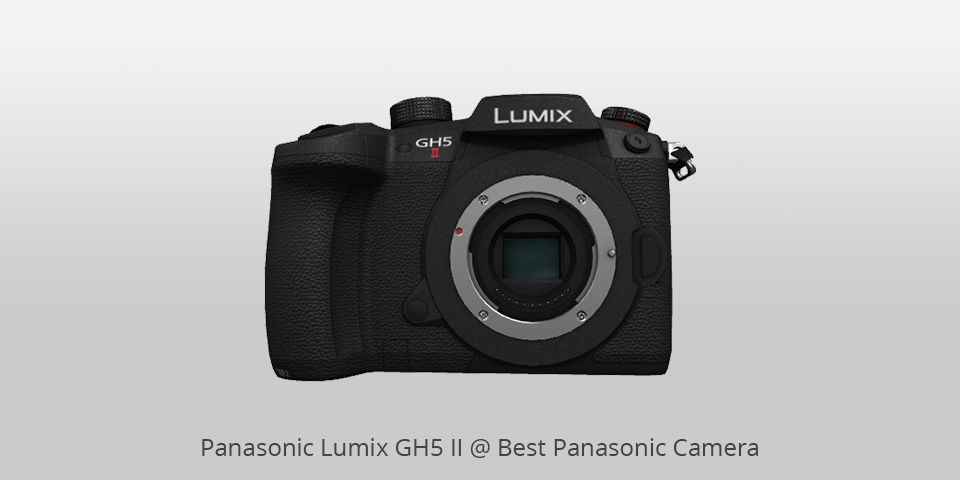
Form factor: Mirrorless | Image resolution: 20.3 MP | Photo sensor size: Micro Four Thirds | Image stabilization: Sensor-shift | Video resolution: 4K
Verdict: The GH5 II is a fantastic hybrid camera that boasts a 20-megapixel sensor without an optical low-pass filter, resulting in stunning image quality. And let's not forget about the 5-axis image stabilization, which keeps your handheld shots smooth and steady. Moreover, it can record internally at up to 6K in 10-bit, or output it via HDMI to an external recorder at 4K 60p.
The GH5 II offers a high frame rate, low noise, and dual UHS-II slots for fast recording times. The large articulating touchscreen display makes it a breeze to compose and review your shots. Panasonic has made significant improvements to the stabilization algorithms, making handheld shooting much smoother, particularly when panning.
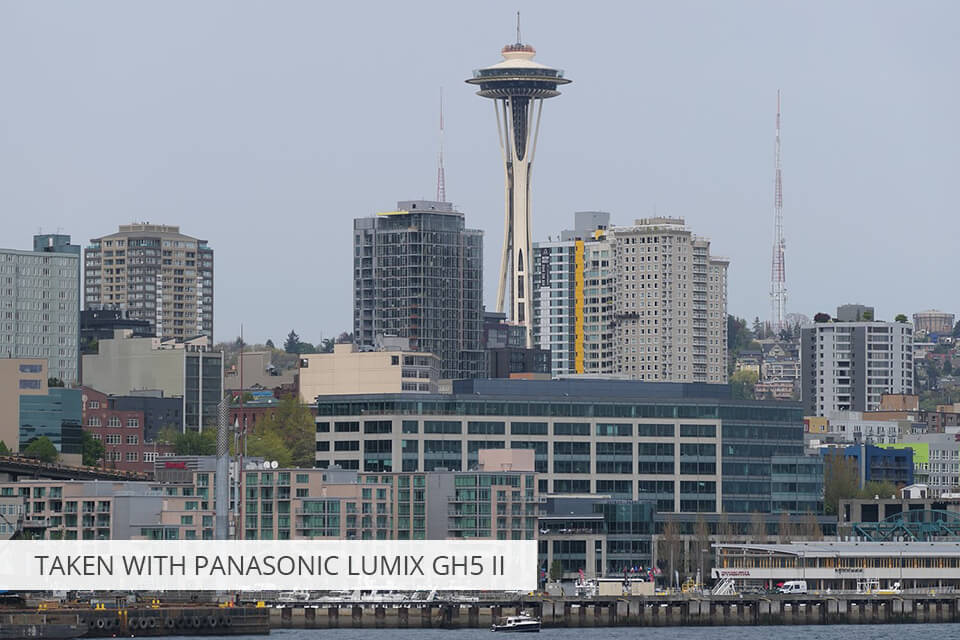
The GH5 II also excels in its advanced focusing options, including face, eye, head, and even animal detection. It’s also compatible with a wide range of Lumix lenses for GH5, making it one of the best Panasonic Lumix cameras for content creators and videographers who frequently switch between shooting videos, live-streaming, and stills.
For enthusiasts
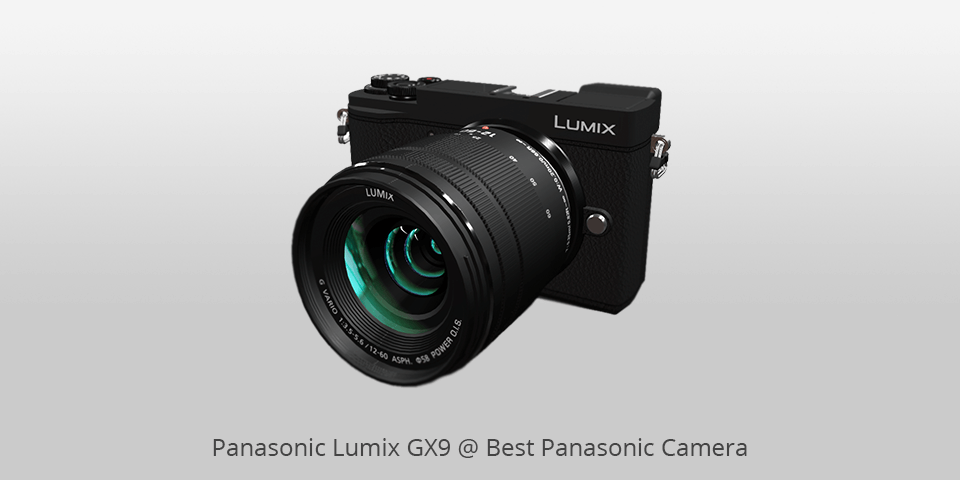
Form factor: Mirrorless | Image resolution: 20.3 MP | Photo sensor size: Micro Four Thirds | Image stabilization: Sensor-shift | Video resolution: 4K
Verdict: The GX9 is one of the newest Panasonic cameras with a superb control scheme, build quality, and customization possibilities. It's perfect for discreet urban photography, as it's compact and unobtrusive to hold and use. The 20-megapixel sensor delivers great image quality and the 5-axis image stabilization system provides up to four stops of compensation.
The GX9 has Bluetooth and Wi-Fi connectivity, allowing you to instantly share images and remotely control the camera using your phone. The creative controls offer a range of options, including a low light/starlight mode for better visibility in dim lighting conditions and a sequence composition tool for combining multiple images.
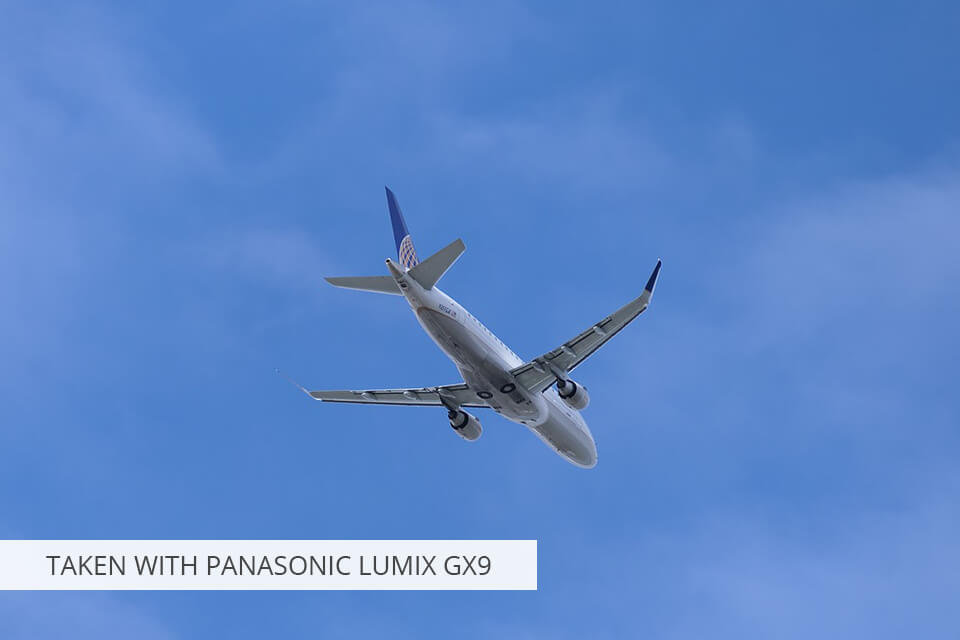
The 4K Photo mode has been significantly improved, allowing you to extract 8-megapixel stills from video clips. You can also apply various preset image effects and filters to both stills and video.
Affordable full-frame
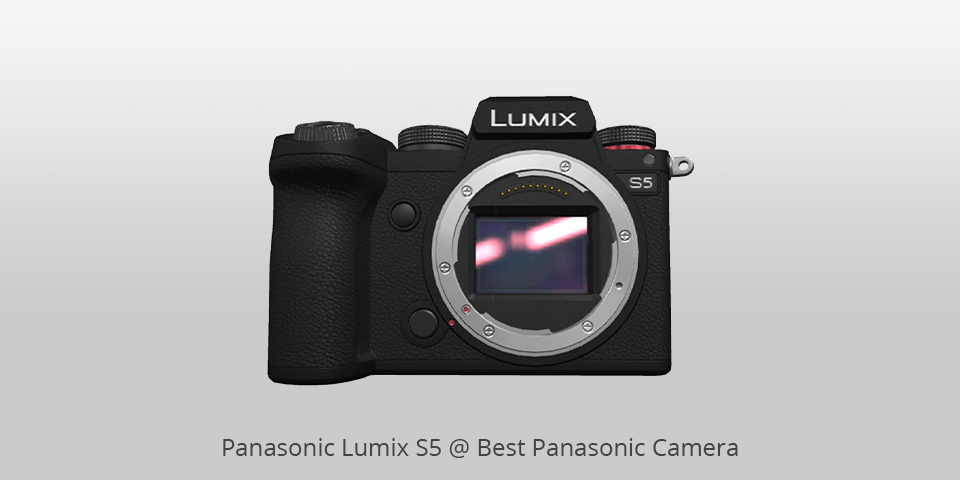
Form factor: Mirrorless | Image resolution: 24.2 MP | Photo sensor size: Full Frame (35mm)| Image stabilization: Sensor-shift | Video resolution: 4K
Verdict: The S5 is a compact camera with impressive 4K recording options and dual native ISO. Its autofocus is super fast, the image stabilization is excellent, and the dynamic range is really impressive.
The S5 is easy to take anywhere and can even fit in your jacket pocket. The large LCD screen is a nice addition, and the controls are well-placed and easily accessible.
The S5 uses a 24-megapixel sensor with a new processor that's both powerful and energy-efficient. This allows for better noise control and more flexibility with lower native ISO settings. The JPEGs produced by the S5 are of excellent quality, even at higher ISO settings.

The S5’s fully articulating screen makes it perfect camera for vlogging, and this Lumix mirrorless camera can track subjects using eye, face, and head detection. Another cool feature is the ability to record a short clip and choose which point in the frame you want to focus on afterwards. It's a neat trick for extracting sharp images from videos.
High-resolution camera
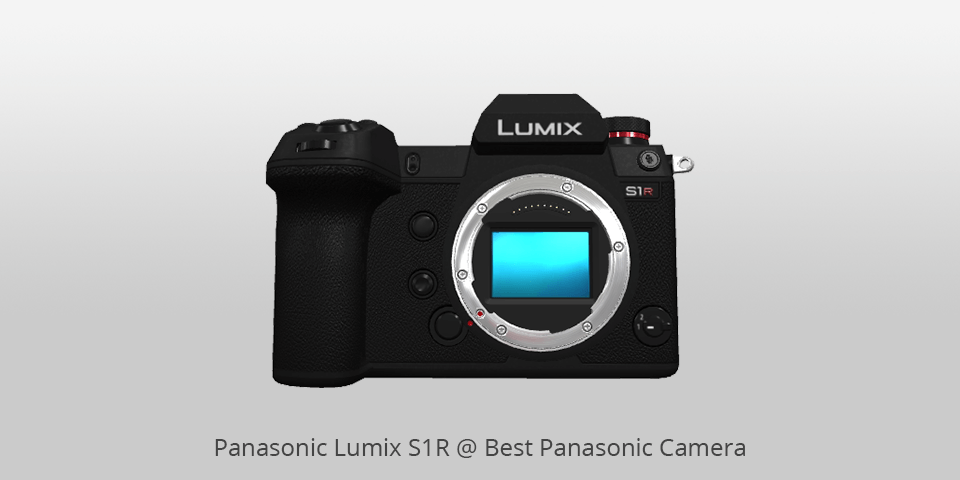
Form factor: Mirrorless | Image resolution: 47.3 MP | Photo sensor size: Full Frame (35mm) | Image stabilization: Dynamic, Sensor-shift, Digital | Video resolution: 4K HDR
Verdict: The S1R boasts a powerful 47.3-megapixel CMOS sensor and no optical low-pass filter, so you get maximum sharpness and clarity. The build quality of the S1R feels sturdy and durable. It has a lock switch on the top left to prevent accidental mode changes, and the drive mode dial on the right is customizable.
The image stabilization system supports professional XLR audio input and output via dedicated hotshoe adapters. The multi-shot high resolution mode uses sensor shift to create incredibly detailed 187MP images, surpassing even some medium format cameras in terms of pixel count. Additionally, it has the highest resolution electronic viewfinder in the world.
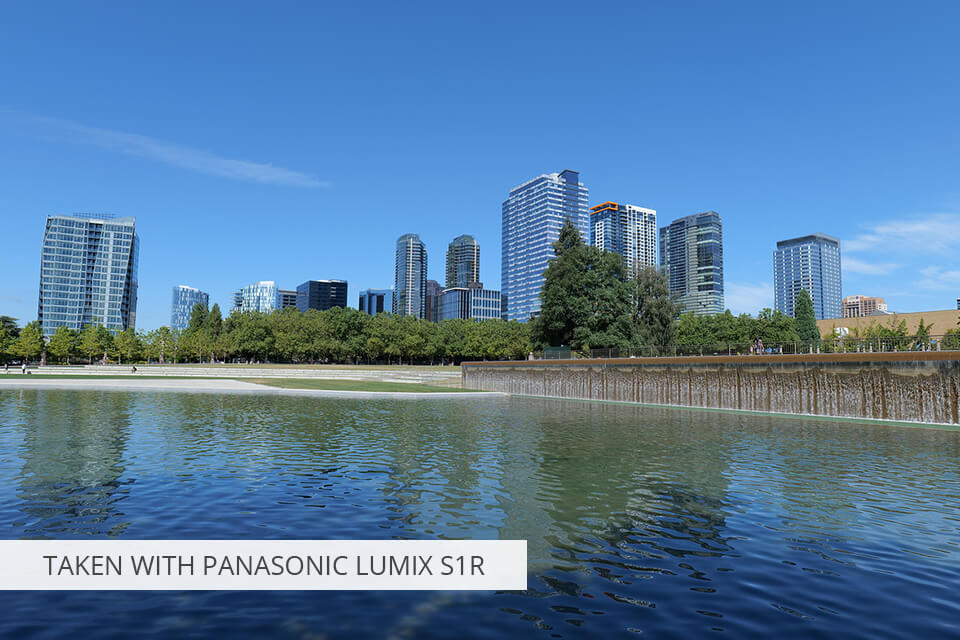
The S1R offers a range of creative capabilities, such as an HDR mode that saves tonemapped still images with Hybrid Log Gamma. This Panasonic mirrorless camera also has a high-resolution multi-shot HDR function that combines eight consecutive exposures into a single image.
Its touch-sensitive controls allows easily navigating through the various focusing areas and selecting from 225 options, including customizable zones, tracking, and object recognition. The tilting screen on the back of the camera can be angled down to 45 degrees for easy framing in landscape orientation and tilted sideways for comfortable use in portrait or vertical formats.
For beginners
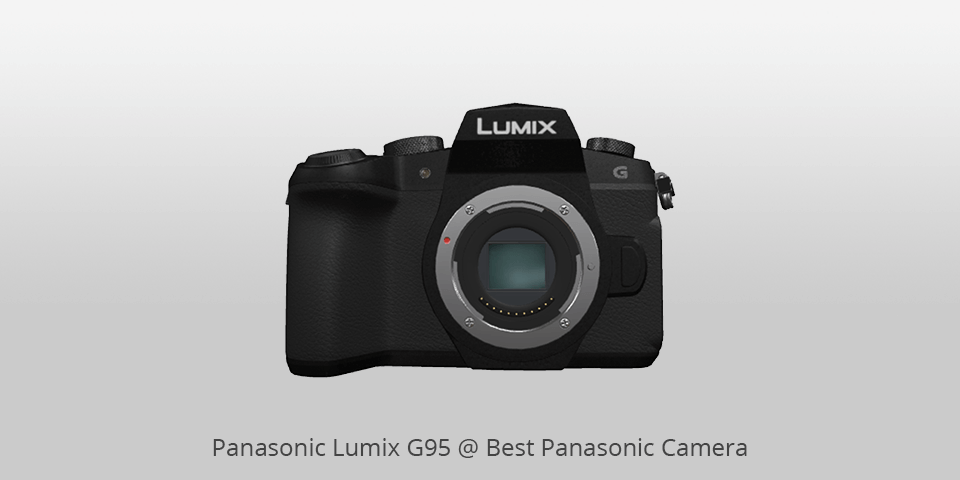
Form factor: Mirrorless | Image resolution: 20.3 MP | Photo sensor size: Full Frame (35mm) | Image stabilization: Optical | Video resolution: 4K
Verdict: Being one of the best Panasonic Lumix cameras, the G95 can capture UHD 4K video at up to 30 frames per second, with no recording length limit. It also comes with V Log-L gamma curve and pre-installed 8-bit 4:2:2 recording for more control over footage during post-production color grading.
This cheap camera features a 20MP Micro Four Thirds sensor without an optical low-pass filter. This, combined with its 5-axis image stabilization, delivers up to five stops of correction for stills shooting. It also boasts a high dynamic range and a Tuned Three-dimensional Color Control function that analyzes the brightness, hue, and saturation of subjects.
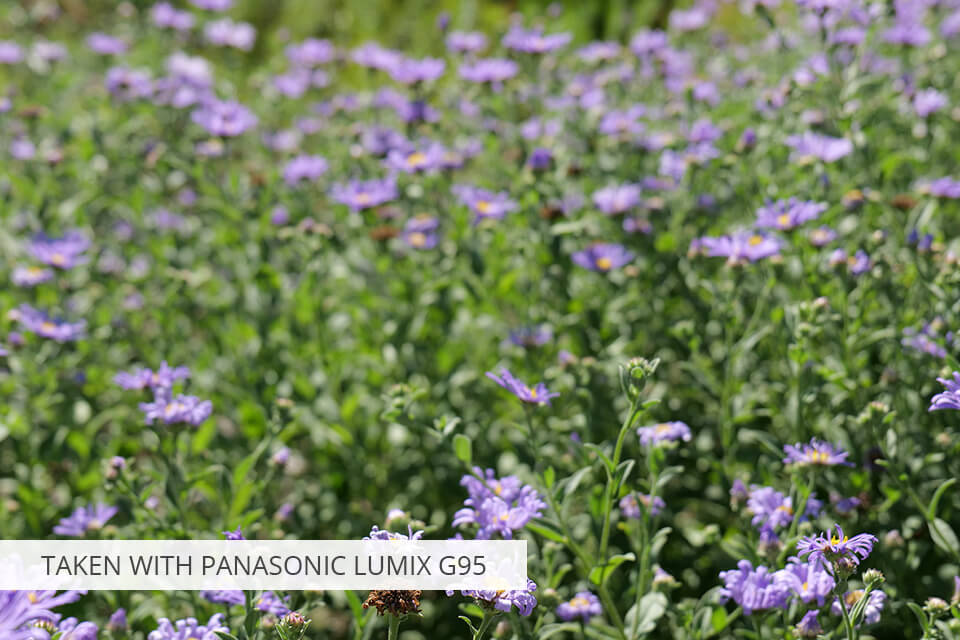
The G95 has an enhanced AF system with 49 focus detection areas. This makes it easier to capture great portraits with sharp, crisp focus on the subject's eye. It also has features like Face/Eye Detection AF, Pinpoint AF, and a dedicated MF Assist display for precise manual focusing.
The camera has a redesigned viewfinder with a magnification ratio of 0.74x and 100% frame coverage. The 2,360K-dot OLED display is also impressive, with a free angle, tilt, and swivel design for various viewing angles. It's touch-enabled, making menu navigation and settings control intuitive.
Great bridge camera
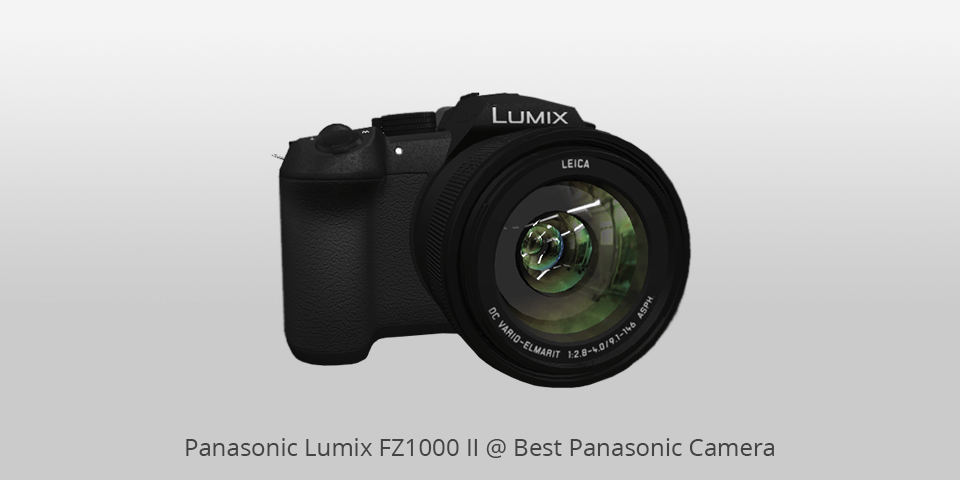
Form factor: Point and Shoot | Image resolution: 20.1 MP | Photo sensor size: 1-inch CMOS sensor | Image stabilization: Optical | Video resolution: 4K
Verdict: The FZ1000 II is a fantastic all-round camera. It comes with a large zoom Panasonic lens that covers a wide range, from 25mm wide angle to 400mm telephoto. This makes it one of the best Lumix cameras for both stills and video. The 1-inch 20mp BSI CMOS sensor also delivers excellent image quality.
It offers a wide variety of shooting modes to suit different photography styles and subjects. The automatic metering system generally does a good job with exposure, although you may need to make some manual compensation adjustments in high contrast scenes.
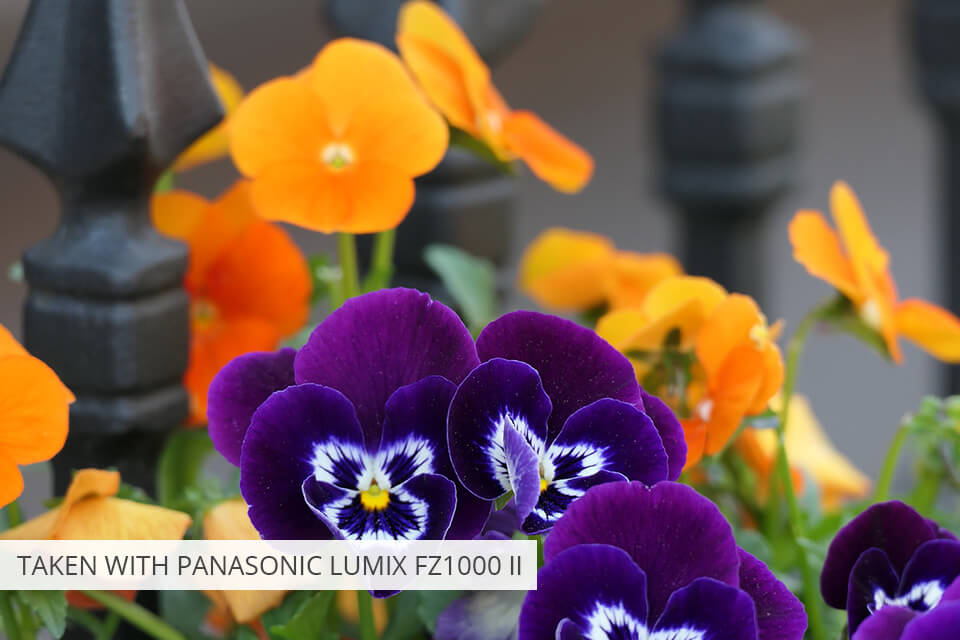
The camera's autofocus system is fast and precise, thanks to Depth from Defocus (DFD) technology. It analyzes both the subject's distance and movement characteristics to achieve accurate focus quickly. The FZ1000 II also has Light Speed AF, allowing you to shoot at 12fps with a mechanical shutter and even faster at 1/16000 sec with an electronic shutter.
Premium compact camera
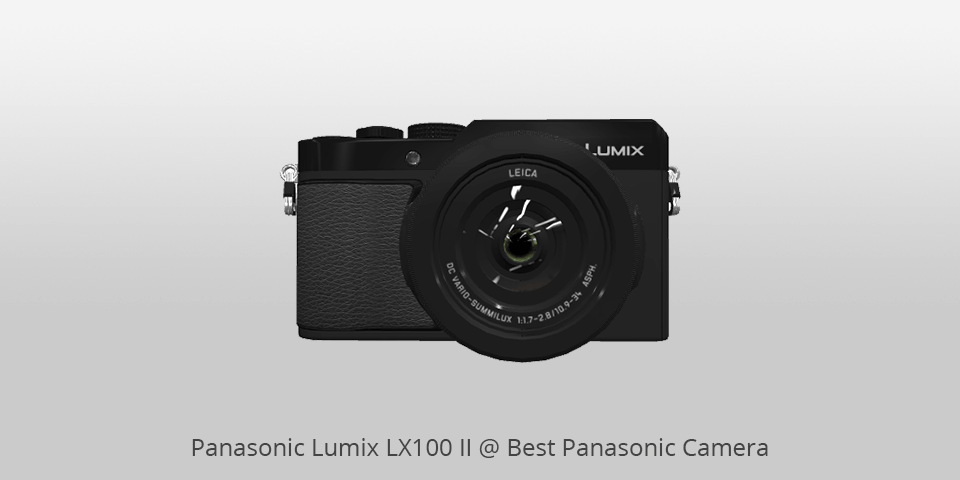
Form factor: Compact | Image resolution: 17 MP | Photo sensor size: Micro Four Thirds | Image stabilization: Optical | Video resolution: 4K
Verdict: The LX100 II is a small and compact camera that comes with a high-quality zoom lens for impressive images. Its image sensor delivers excellent image quality, even at high ISO values. Plus, it offers the option to record 4K videos, making it the best Panasonic camera for those who want to capture stunning footage.
The LX100 II allows you to bracket exposure or aperture, and shoot sequential images for focus stacking, which is great for more creative work. There are also special effects like Grainy Film, Art Filter, and Starry Sky, as well as the ability to record time-lapse sequences.
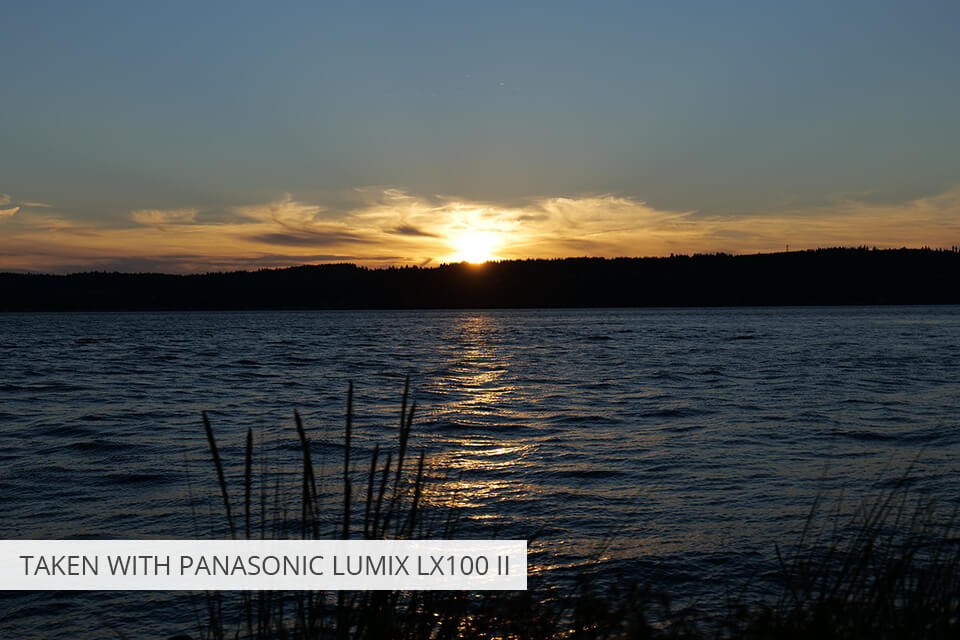
The LX100 II boasts 49 focus points, which is more than enough for most shooting situations. It can even track subjects well in low-light conditions. Moreover, the 4K Photo Modes let you capture split-second action or get higher quality images than standard JPEGs.
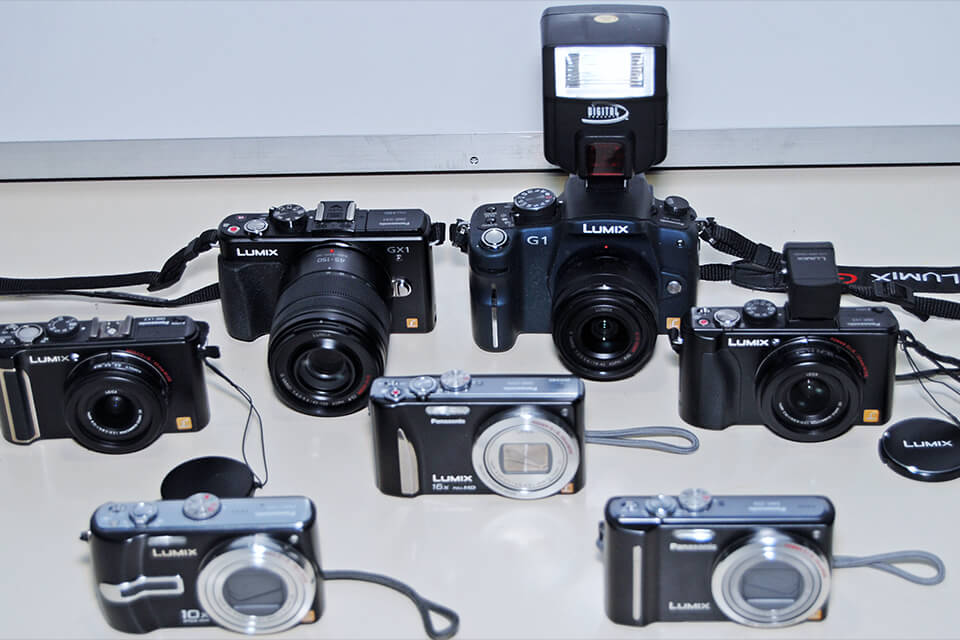
Panasonic offers a range of mirrorless, Micro Four Thirds, compact, and bridge cameras. To explore all their camera lineups and find the best Lumix camera, follow the description below.
S: Full-frame mirrorless cameras with L-mount lenses.
G: Mid-range SLR-style mirrorless cameras, some leaning towards high-end.
GH: High-end SLR-style mirrorless cameras with advanced video functionality.
GX: A newer range of rangefinder-style mirrorless cameras, falling between entry and mid-level.
GF: Entry-level rangefinder-style mirrorless cameras with a built-in electronic viewfinder.
FZ: This line of cameras provides DSLR quality with some limitations (you cannot change the zoom lens).
LX: This series includes compact and exclusive cameras that give you full control of focus and exposure with a joystick and support RAW format.
TZ/ZS: 'Travel Zoom' compact point-and-shoot cameras.
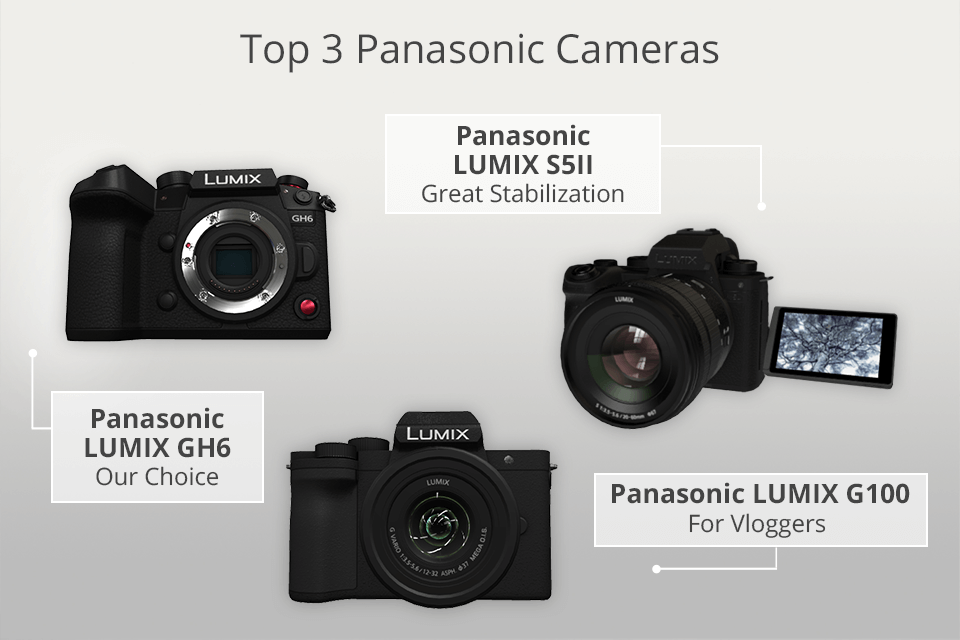
When choosing the best Panasonic camera, consider image quality, image stabilization, zoom capabilities, continuous shooting speed, and of course, your specific shooting style and needs.
Image quality. The image quality of a Panasonic camera depends on the size of its sensor and lens compatibility. A larger sensor means better images, especially in low light conditions.
However, keep in mind that a larger sensor can make the camera bulkier and more expensive. So, it's a trade-off you need to consider based on your needs and shooting style.
Image stabilization. Panasonic cameras excel in this area, which is crucial for capturing smooth and blur-free images. Whether you're shooting handheld or recording videos, their superior image stabilization capabilities come in handy. It compensates for any hand movement, reducing the need for a tripod.
Zoom capabilities and continuous shooting speed. A Panasonic camera with a high-quality zoom lens will allow you to capture sharp and clear images of faraway subjects.
And if you're into action photography, a high-speed continuous shooting mode is a must. It ensures you don't miss a moment, even with fast-moving subjects.